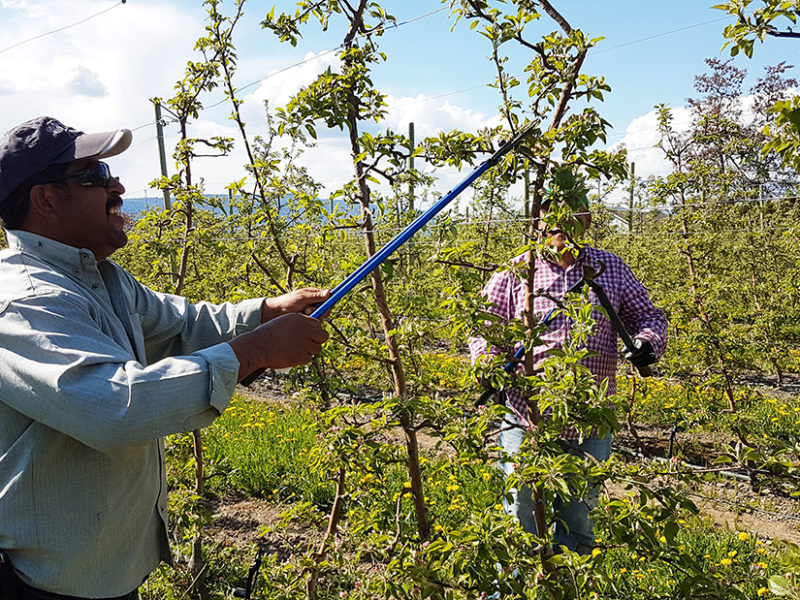Ottawa’s support for agriculture during the COVID-19 pandemic has drawn mixed reviews.
Many critics say it falls well short of the $2.6 billion the Canadian Federation of Agriculture and its members, including the BC Agriculture Council, have asked for.
Others point out that programs such as the Canadian Emergency Response Benefit (CERB), which offers up to $2,000 a month to individuals suffering a loss of income as a result of the pandemic, is at cross-purposes with efforts to secure workers in essential sectors like agriculture. CERB caps the additional income recipients are allowed to earn at $1,000.
Recently, staff from the federal agriculture minister’s office contacted Country Life in BC, saying that the shortfall had been greatly exaggerated. Staff outlined several programs announced in recent weeks to support Canada’s farming sector, a list recapped in an announcement this week regarding expanded eligibility for the Canada Emergency Business Account.
“Farmers can be assured that we have their back, and we are continuing to roll-out supports for our agriculture sector.”
CEBA allows farmers without payroll to access a $40,000 interest-free loan, up to $10,000 of which is forgiven if $30,000 is repaid by December 31, 2022. It is one of several programs providing access to credit and or allowing deferred payments. Similar programs include $5 billion in additional capital capacity for Farm Credit Canada, $200 million additional credit for the Canadian Dairy Commission to purchase and stockpile dairy products and $173 million for deferred Advance Payment Program loans.
Other programs aim to provide direct support through the $3 billion in wage top-ups for essential workers in partnership with the provinces and territories, a 75% wage subsidy for businesses suffering significant revenue declines and other programs designed to support employment in the farm sector.
But with many of these, the exact amount of funding for agriculture can’t be pinned down because the programs cover several sectors. In the case of the wage top-ups, federal staff have put the onus on the provinces to determine the rules.
Moreover, the amounts actually spent will depend on participation.
“It’s a big number, basically,” Bibeau’s staff replied. “It’s difficult to put out those estimates, particularly since we don’t what provinces are going to go forward with.”
Provincial supports are equally difficult to determine, with BC Ministry of Agriculture staff unable to say how much has been allocated to house foreign workers during their mandatory isolation period following their arrival from abroad.


 IAFBC over-subscribed
IAFBC over-subscribed